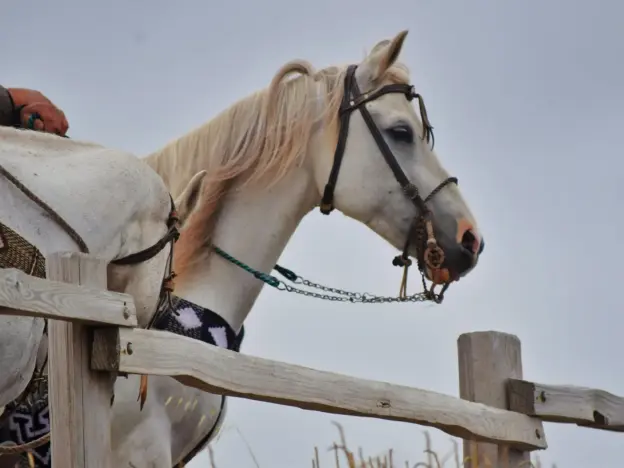Intro
Interestingly enough, the Spanish Barb originated in the Americas, although they were developed by the Spanish. They come from North African and Iberian animals.
Origins
Breeding of these animals was originated in the Americas during the 16th and 17th centuries by breeding Barbs to a variety of Iberian breeds, including Andalusians and Jennets. The resulting animals effectively carried the strength, endurance and adaptability of Barbs with the noble bearing, quality and smooth gaits of Iberian animals.
Though they have long been useful, their numbers are very low. Currently there are breeding programs in place spearheaded by enthusiast Susan Field-Paulton. In 1957 she realized just how few purebred animals were left and decided to do something about it. She acquired a small herd and began active breeding by the mid 1960’s. Animals were qualified based on their genetic lineage, physical characteristics, performance and their ability to produce consistent progeny.
Spanish Barb Strains
There are several strains of this breed, often based on pockets of animals found in isolated areas.
Wilbur-Cruce Horses
Discovered in Arizona in the late 1980s, where the Wilbur-Cruce herd had been living in isolation for over a century. They are the ancestors of a Jesuit breeding program at Rancho Dolores late in the 17th century. The herd was preserved and make up a large percentage of the registry today.
Original SBBA
The original strains in the Association which came from several populations located throughout the west. Counts for only a handful of registered animals.
Baca-Chica
Named after Joty Baca who founded the strain after years of breeding Spanish horses in Baca Chica. The foundations for this strain came from mountainous areas in New Mexico. Baca dedicated his life to breeding these animals for temperament, smaller size and endurance. Upon his death in 2013, his remaining herd was dispersed and only a small number of them remain.
Other Sources
The registry is open and allows registration of other animals with outstanding characteristics.
Features
Average height 13.3 – 15 hands
Physique
Head is handsome, refined with a convex or subconvex profile
Eyes are almond shaped and set low
Neck is short and heavily crested
Shoulder is long and sloping
Legs are well positioned
Hooves are tough and thick-walled
Traditional Colors
chestnut | black | dun | roan | pinto | buckskin
Temperament
Intelligent and easy to train
Spirited and noble
Sensible and dependable
Use
Riding horse
Cattle horse
Endurance mount
Helpful Links
* all links open in a new window
Spanish Barb Breeders Association
